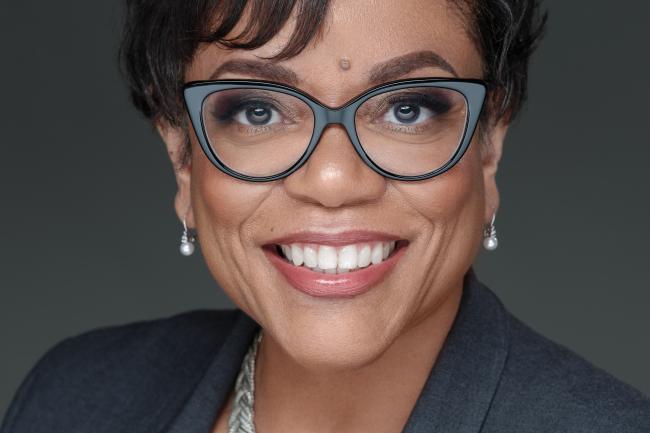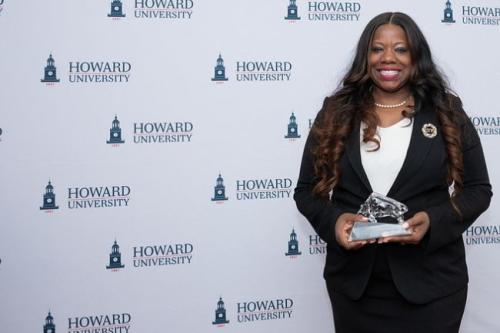Howard University surgeon Debra Holly Ford (BS ’82; MD ’86) was recently inducted as a member of the American College of Surgeons (ACS) Academy of Master Surgeon Educators, a coveted honor in the field. Dr. Ford is the first African- American woman to obtain board certification in Colon and Rectal Surgery in the United States and the first Black woman to become a fellow of the American Society of Colon and Rectal Surgeons.
Dr. Ford has been a member of the Howard University College of Medicine faculty since September 1994. She has taught over 2,600 medical students and trained close to 150 residents. Currently, she serves as associate professor of surgery and senior associate dean for academic affairs in the College of Medicine, among other roles.
“I have dedicated my entire career to the education of medical students, postgraduate surgical trainees, health science students and young surgeons in support of their goals to become productive members of the health care workforce,” Dr. Ford said. “I have treasured this work, and I do not take lightly my role as a Black woman, surgeon, educator and mentor and the need to continue to develop and advocate for a diverse surgical workforce.”
A native of Pine Bluff, Arkansas, Dr. Ford was educated through the public school system and received Bachelor of Science (zoology ’82) and Doctor of Medicine degrees from Howard University. After graduating from Howard University College of Medicine in 1986 as the top-ranking medical student, she successfully completed a general surgery residency at Howard University Hospital in 1991 followed by a residency in colon and rectal surgery at the University of Texas and Affiliated Hospitals in Houston.
“I do not take lightly my role as a Black woman, surgeon, educator and mentor and the need to continue to develop and advocate for a diverse surgical workforce.”
Dr. Ford is head of the colon and rectal surgery section in the College of Medicine and was the founding medical/surgical director of the Howard University Health Sciences Simulation and Clinical Skills Center. She is actively involved in teaching at every level of undergraduate and graduate medical education. In 2012, she stepped down after 13 years as program director of the HUH General Surgery Residency, where she personally guided the surgical training of over 90 resident surgeons during that time period. Her research areas of interest are surgical education, simulation in health care, and diseases of the colon, rectum and anus.
She has received many teaching awards from graduating student and surgical resident classes and has been recognized for her surgical acumen and clinical work. Her other honors and awards received as a surgical educator include the Kaiser Permanente Teaching Award twice, teaching attending of the year many times, and honored faculty member by many College of Medicine graduating classes.
Dr. Ford said mentors like Clive Callender, Edward Cornwell, III, the late Lasalle D. Leffall Jr., to name a few, provided resources and support that have allowed her to reach professional goals and strengthen her resolve to give back to the surgical community.
Developed by the ACS Division of Education, the academy recognizes surgeon educators who have devoted their careers to surgical education. Individuals are selected as members, associate members or affiliate members following stringent peer review. The Academy’s mission is to play a leadership role in advancing the science and practice of education across all surgical specialties, promoting the highest achievements in the lifetimes of surgeons.
Academy membership carries an obligation for commitment to the Academy’s goals, which are to identify, recognize and recruit innovators and thought leaders committed to advancing lifelong surgical education; translate innovation into actions; offer mentorship to surgeon educators; foster exchange of creative ideas; disseminate advances in surgical education; and positively impact the quality of surgical care and patient safety. In addition to supporting the mission and goals of the Academy, members must actively participate in Academy programs and activities.





